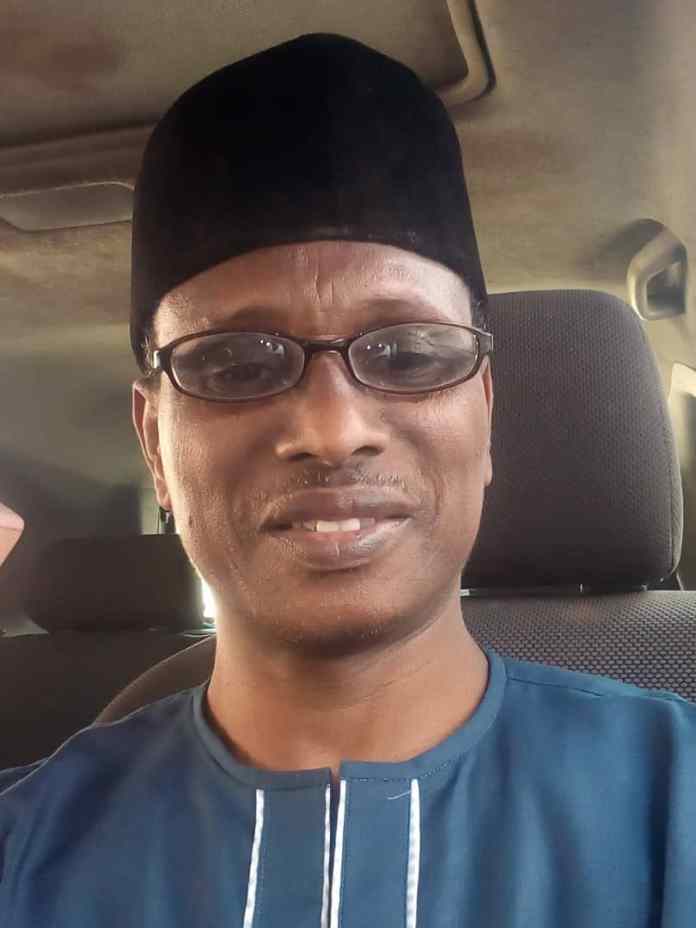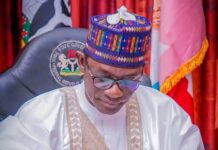How long does it take to process Nigerian passport?, by Ibrahim Dan-Halilu
I put this putative question to many people, including officials of the Nigerian Immigration Service (NIS) headquarters in Abuja, but nobody gave me a satisfactory answer. I supposed this is an inormation that should be made available on the NIS website.
I took extra time to find answer to this question when I applied for renewal of my expired passport about two months ago. The process began with filing of an online application for renewal and making payment which took about 15 minutes, I was directed to print my appointment slip and payment receipt which would be attached to an application for renewal, a copy of the biodata page of the old passport, and National Identity Card Slip. With all these documents attached, I thought I had scaled all hurdles to getting my new passport in a matter of two weeks as was the case when I did the last one. I didn’t know I was in for a pleasant surprise.
I went to the NIS headquarters in Sauka village, Abuja on October 12, which was the selected date available on the NIS application site to have my biometric data captured. I thought it was a straight forward process, where I would go wait for my turn as recorded in the online schedule, to present my documents and have my biometrics captured within 10-15 minutes or even an hour. But that was not the case!
The process took the whole day even with the intervention of some good Samaritans who considered my age as a factor to give me accelerated attention. A new process began altogether. I have to write a paper application requesting for passport renewal, get it filed in a jacket, and submitted to an officer for approval. This took almost three hours because he had dozens of such files on his table to approve.
At first I asked myself, what’s the essence of the online application? I thought by filing an online application one has provided all the details the approving officer needs to give it a clean bill of health so that once the applicant is at the passport centre, all that is needed to be done was to collect the documents, endorse and pass on to the biometric centre to enable them compare the information entered on their server and the hard copies presented by applicant. I thought the online process was aimed to reduce the processing time by about half since all information is already in the NIS servers.
I didn’t know that another surprise was awaiting me at the biometric data capture office, where an officer still had to ask for the same information I provided in my online application. This took about 10 minutes to enter into the system – the time enough for the entire process! I left the NIS Passport Office at 5:00pm with many unpalatable impressions, which I believe are shared by many passport applicants.
First, the Passport Centre is not befitting of our external image. The place was very hot, and the space wasn’t enough to contain all the people invited for the biometric capture as some were standing for as long as they waited for their numbers to be called. Secondly, there was no immigration officer to direct applicants on what to do as they entered the waiting room. In short, there was no semblance of courtesy granted the visitors. It was as if the NIS is doing applicants a favour by coming to take their biometrics. I spent the whole day at the centre and when I finally left to take a taxi back home, heavy rain started.
Thirdly, there is no clear information about the collection date of the passport as every staff when asked was evading the question. They simply tell one to check the tracking system introduced recently by NIS. All that was handed over to me was a piece of paper on which the officer scribbled my name, application number, date of the biometrics capture and the phrase “3 weeks.”
It’s exactly five weeks today since I had my biometrics captured at the Passport Cenre in Sauka Abuja, so I decided to check the tracking system. The information I got was not quite satisfactory. It shows the five stages of the process, starting form payment of the passport renewal fees, to application sent to workstation of the passport office, confirmation of receipt of application by the workstation, biometric capture, NIN verification, and production.
The tracking system is not transparent as it does not indicate the date on which each of the stages started and got completed to determine when the passport will be ready for issuing. The last stage, which is production, can take up to six months as my sources informed me. And that is the problem that needs to be addressed by the Comptroller General of Immigration (CGI).
Why has the passport application process deteriorated under the Buhari Administration? Why is everyone silent about it? If there is shortage of the passport booklets, why can the service not inform Nigerians to stop putting new requests until the backlog is cleared?
Why should the NIS lack the passport booklets in the first place having known that Nigerians interested in traveling will come requesting for it? Is this a deliberate policy of the Buhari Administration to stop people from travelling or the NIS is just being insensitive to the demand of Nigerians for the travel document?
I have heard stories from several passport applicants I met at the NIS headquarters, and those with whom I have discussed about the inefficient service of the NIS Passport Office. Some of the stories have been confirmed during my visit. Others are yet to be confirmed but there seem to be some elements of truth in them.
One of such stories is that some unscrupulous personnel of the NIS are compromising both the scheduling and biometric data capture procedure by bringing in people to the Passport Centre to have their biometrics captured for a fee. I met a young man named Kunle who said he came all the way from Lagos to process the passport after a change of name, and had paid 200,000 Naira to an NIS Staff for the service he was yet to receive. I asked him to show me the staff, but he declined for fear of losing his patronage.
A lady who was to travel with her fiancée to U.K. also told me that she received her passport after waiting for over six months. ”We applied for the passport in March, but we didn’t get it until last month (October). Now we have to reschedule our travel plans, said Memunat. Memunat was not the only person that talked to me about the long delay in passport processing. One Abdul I met at an event in Abuja two weeks ago also narrated a similar experience. He said he waited for almost eight months before he got his passport. His conclusion was that the NIS personnel have turned passport processing into a personal enterprise.
Many of their senior officers are making a hell of money with passport applicants. Could this be the reason for an artificial scarcity? while I agree that many NIS officers attached to the Passport Centre are really helping applicants process the passport and get paid, I wonder how this racketeering can be taking place without the knowledge of the CGI of the NIS.. If he is aware of it, what measures has he taken to curb this undue practiced by his personnel? How can the CG allow few elements in the service to be sabotaging one of the important tools of our foreign relations? Does this practice not translate into a financial crime which the EFCC should wade into and bring perpetrators to justice?
In my encounter with some immigration officers, some of them have put the blame on the CGI himself, accusing him of being so slow in giving approval for the purchase of more passport processing equipment to be deployed to other centres.
My sources confided that for now it’s only Abuja and Lagos that process the new improved e-passport. This will undoubtedly overcrowd the two centres and create artificial scarcity, which breeds the extortionist tendency as applicants engage in employing the service of a third party to process the passport.
While this could be accepted as a reason, but it’s not a good excuse. How much will it cost the Nigerian Government to purchase the processing machines and install them in each of the existing passport offices across Nigeria?
Another area of concern is the time taken to capture the biometrics of applicants. If the service has eight working hours per day like all other public offices, it means they have 480 hours per day to capture biometrics of applicants. At 5 minutes per applicant, it means they can capture biometrics of only 90 applicants per day. But I met over 200 applicants both in the waiting room and the waiting area outside the passport centre. How can this be feasible? Is it not an invitation for chaos, and sidelining of those without a VIP note?
I also found it quite strange that the NIS servers cannot integrate data captured during the online application onto their servers when applicants come for biometric capture. The staff still requested for the same information they received from applicants online over two weeks or a month ago. This is a time waster that needs to be checked.
This writer made several attempts to contact the Public Relations Department of the NIS to verify some of the applicants’ claims, and to get the other side of the story for balancing and fairness as our demanded by our professional ethics but the contact name given to me was not picking my calls. He was not replying my text and WhatsApp messages either.
At a media briefing last Saturday, an Assistant Controller General, Isah Idris has told journalists that the service has introduced the tracking system for passport applicants to check status of their application in a bid to eliminate touting by some of its staff and other third parties. Mr Idris has blamed the delay in processing the passports on dependence on a foreign firm to print the document, and the NIN verification process which takes time. He promised Nigerians better days ahead when the service introduced domestic production of the passports and moves NIN verification to the pre-application stage.
This writer believes that the two issues can be addressed in the shortest possible time to avert the crisis that has visited passport application process in recent times. The restoration of domestic production of the passports will not only enhance security of our nation but improve efficiency in service delivery. It is a process that must be expedited to save Nigerians the pain they go through to process the passport.
Ibrahim Dan-Halilu is an Abuja based public commentator and communication consultant. He can be reached by email at idhalilu@gmail.com, or mobile at +234 8101064449.
Follow the Neptune Prime channel on WhatsApp:
Do you have breaking news, interview request, opinion, suggestion, or want your event covered? Email us at neptuneprime2233@gmail.com





